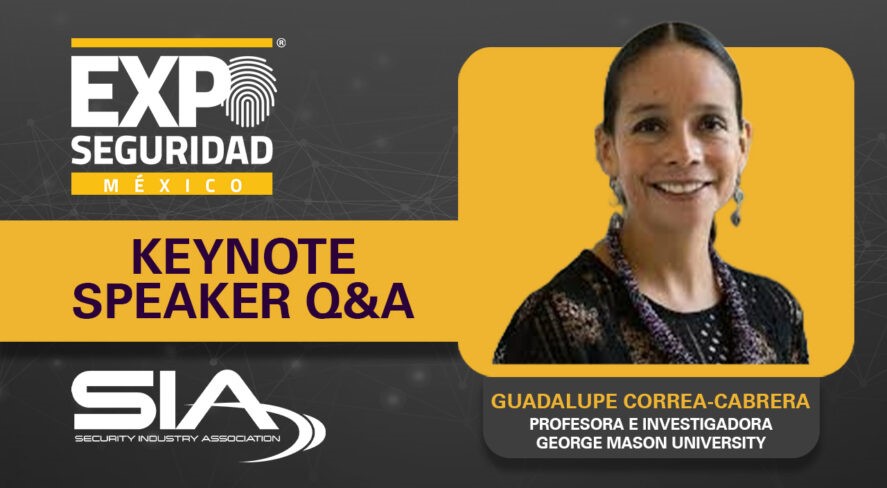In This Story

Guadalupe Correa-Cabrera is a professor at the Schar School of Policy and Government at George Mason University with a deep expertise in international security. Next week, the professor is the keynote speaker at the Expo Seguridad México in Mexico City, a conference that showcases experts from business, technology, and government.
In advance of her speech, the sponsoring Security Industry Association posted a question-and-answer interview with the professor. We reprint the interview with permission.
Which economic sectors do you consider most vulnerable given the current security situation in Mexico?
Guadalupe Correa-Cabrera: Micro and small businesses, the hydrocarbons sector, transportation and, in general, all types of businesses that are forced to pay extortion fees to organized crime.
What role does technology, such as artificial intelligence or data analysis, play in the fight against organized crime?
GCC: Artificial intelligence can play a key role by enabling the cross-referencing of large volumes of information and establishing links between individuals, financial movements and behavior patterns.
When combined with other technologies such as video surveillance cameras, AI further enhances analysis by allowing for more precise identification of individuals, their connections, and behavioral patterns.
In your view, how can governments, academia and the private sector collaborate more effectively to combat crime?
GCC: I believe that academia, the private sector and the government must work together consistently, especially in data analysis and the exchange of perspectives. The government needs to draw on citizen participation and perception to understand where the problems lie. The voices of citizens and academia are very important, as they are often the ones who clearly point out the areas that need attention.
Society, together with academia, can provide data that strengthens investigations conducted by prosecutors and other government entities.
On the other hand, academia can also provide information to the private sector, fostering more direct collaboration. In the context of combating organized crime, this coordination among sectors can generate even more useful information and strategic approaches. The government, in this regard, must remain attentive and receptive to these demands and needs, especially when it comes to security in specific spaces and sectors.
